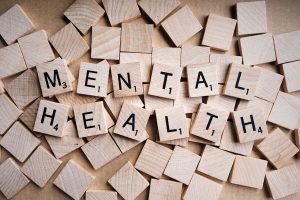 Take a Social Media Break for Your Mental Well-being
Take a Social Media Break for Your Mental Well-being
A Healthline survey recently found that 25% of people say social media negatively impacts their mental well-being, and more than half (53%) believe cutting down on social media use could improve their mental health. Other studies have found that social media use can worsen loneliness, depression, anxiety, self-worth and quality of sleep. Despite this, many people turn to social media out of habit or to relax.
Consider the following tips for reducing social media use:
- Find alternative sources of relaxation. If you turn to social media to help you unwind, try exchanging it for another activity, such as walking, reading, crafting, listening to music, baking, yoga, meditating or playing with a pet.
Try other ways to connect. If you use social media to communicate with others, consider alternatives, like volunteering, calling friends or family, inviting people over for dinner, joining community clubs, chatting with neighbors or taking an exercise class.- Seek other means of entertainment. Engage in other forms of entertainment. For example, try listening to podcasts, reading, learning something new, or going to a local museum or art show.
Setting BoundariesFor some, quitting social media altogether may be an unrealistic goal. Focus instead on creating a healthy relationship with social media by:
- Unfollowing accounts that leave you with negative emotions
- Deleting any negative comments or messages
- Striving not to compare yourself to others
- Prioritizing your mental health

If social media hurts your mental health, take a break and try an alternative source of entertainment, connection and relaxation.
Understanding the Impact of Loneliness on Your Health
While it’s normal to feel lonely sometimes, persistent feelings of loneliness can seriously affect your physical and mental health.
People who experience chronic loneliness are more likely to develop the following conditions:
- Heart disease
- A weak immune system

- Alzheimer’s diseaInflammation
- Obesity
- High blood pressure
There are also strong correlations between long-term loneliness and the following mental health conditions or symptoms:
- Low self-esteem
- Stress
- Sleep issues
- Substance misuse
- Mood disorders (e.g., depression)
Challenging Loneliness
Fostering strong social connections and caring for yourself can help you combat loneliness in your daily life. Here are some strategies to try:
- Reach out to others. Call or spend time with those who support and uplift you.
- Try new things. Volunteer in your community, take a dance class or join a local sports team to meet new people.
- Focus on self-care. Prioritize meaningful activities that make you feel good, such as crafting, eating well and exercising.
- Challenge negative thoughts. Be conscious of how loneliness can change the way you feel. Combat negative thought patterns by expecting the best out of other people and yourself.
Left unchecked, enduring feelings of loneliness can have significant mental and physical health ramifications. Proactively engaging with others and prioritizing activities that boost your mental state can help you challenge negative perceptions



















